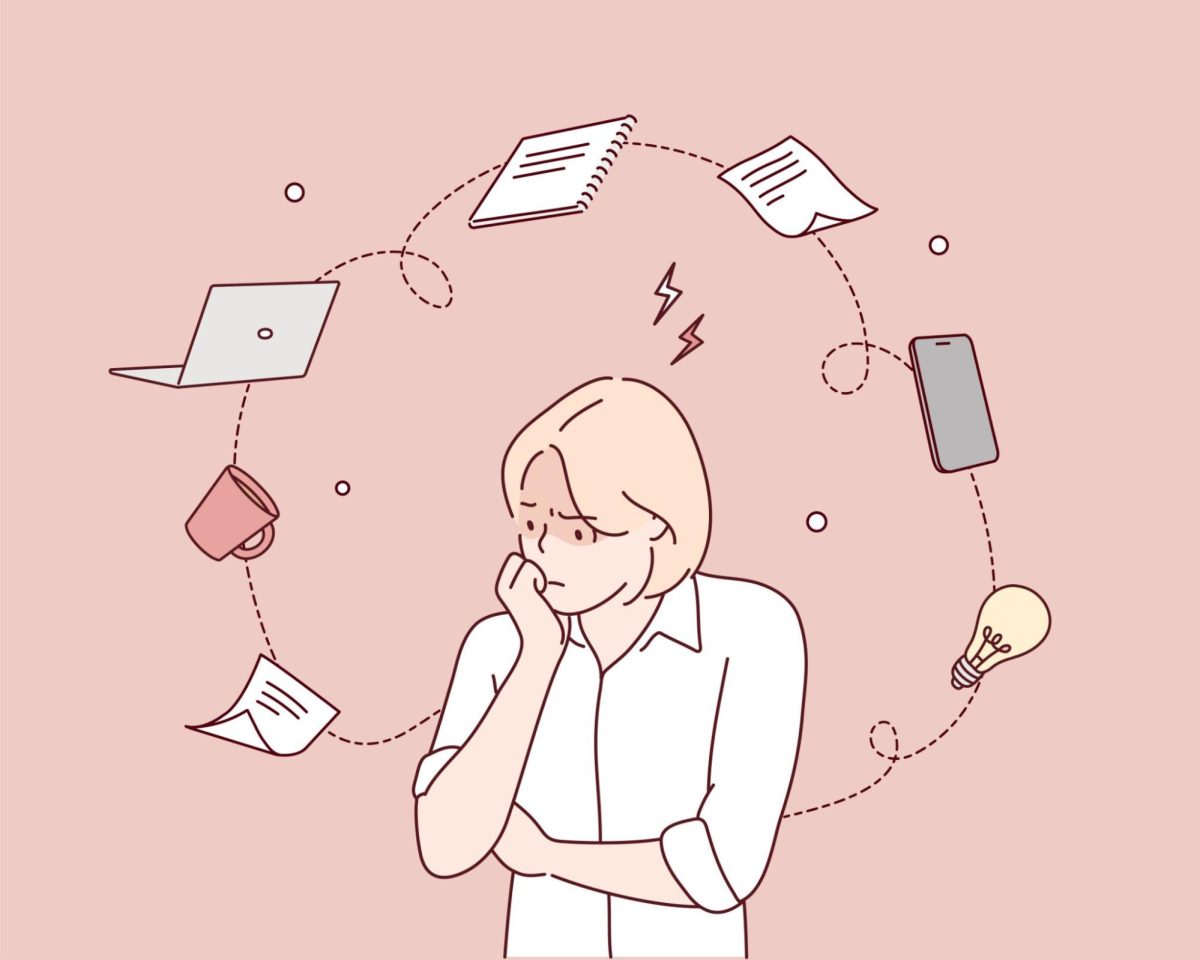You look up from your screen to copy notes for your math class but get sidetracked when you notice what other people are doing in the rows ahead. One person is watching highlights from a Nadal vs. Federer match, another is scrolling through YouTube shorts, a third is split-screening Infinite Campus and a calculator to determine their grades. Someone even has their phone out, hidden by their iPad, to play Clash Royale. You yourself chose to sit a little farther from the front so, if necessary, you too can wrap up an assignment from another class when the teacher isn’t looking.
No student is a stranger to these distractions. We witness and may partake in this “multi-tasking” regularly. It is so omnipresent that there is even a social media account dedicated to displaying South students who stray from classwork. However, the normalization of being distracted in class is just a symptom of a ubiquitous problem—our shortening attention spans.
As Gloria Mark, author of Attention Spans: A Groundbreaking Way to Restore Balance, Happiness, and Productivity, explained, shortened attention spans can be attributed to several factors: lack of sleep, enthusiasm for a topic, and proper nutrition. However, the root cause is distractibility. In this digital age, at any moment, our phones could buzz, pulling us from whatever activity we had been doing. Then, every time we check a push notification or answer a call, we get a dopamine rush, which repeatedly reinforces this cycle: we reward our brains for becoming distracted and therefore let it happen more frequently.
As Junior Kimberly Chan said, “I’ll go [on Instagram] for five minutes—but then I’ll go one minute over. So, I set a different time, and the cycle repeats. It just goes on and on, and then an hour passes.”
We then feed the problem by constantly choosing to shorten the learning process and move on quicker to other activities, thereby losing the ability to engage properly with the material we learn. In English classes, we struggle to recall details and maintain a thorough understanding of the plot in texts like Julius Caesar or A Tale of Two Cities. Instead, we may rely on tools like Sparknotes to comprehend these texts or even forgo the reading altogether. When using Google to research, instead of scrolling to find and read legitimate sources, students depend on AI summaries that already hyperlink information and synthesize (possibly inaccurate) answers. Google searches also include a tab dedicated to short videos—again encouraging a rushed learning process. While these resources are helpful when we are short on time, they should not replace the educational journey.
Gloria Mark recommends taking time away from devices to improve your attention span. However, as students, switching off all devices to do work is unfeasible. Instead, cut out the apps and websites that distract you. Remove push notifications from social media platforms. Use screen time features and apps like BlockSite to stop or limit time on distracting websites. Practice working productively for long periods of time without interruptions: set time goals for when to finish an assignment without straying or stay in settings like the library to minimize noise disturbances.
Our education is the foundation for the rest of our lives. In college, digesting large swaths of information is expected, and remembering and analyzing large books quickly is essential. As The Atlantic article, “The Elite College Students Who Can’t Read Books” explained, there are lasting implications of not learning how to read closely or learn thoroughly now: we will not be able to handle the increased workload and expectations of college texts and professors, then suffer in our future careers.
Appreciating the learning process and paying attention in class also aid our growth as lifetime learners. Paying attention in class helps us engage more thoughtfully with the world and build meaningful connections to what we learn. A shortened attention span is not a fixed obstacle to our productivity but a flexible element to be improved. It is imperative we treat it as such; our actions start with our mindset—our will to change.









